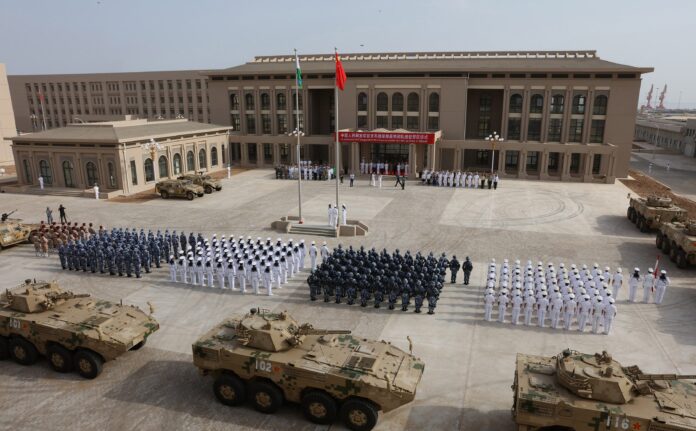Authors: Elizabeth Cobbett & Ra Mason
Affiliation: University of East Anglia (Norwich, UK)
Organization/Publisher: International Affairs, Oxford University Press
Date/Place: November 1, 2021/UK
Type of Literature: Academic Journal article
Number of Pages: 17
Link:https://academic.oup.com/ia/article-abstract/97/6/1767/6412442?redirectedFrom=fulltext
Keywords: African Geopolitics, East Africa, Global Security, Sovereignty, Djibouti
Brief:
Although most view Djibouti’s leasing of land to foreign military powers as a compromise of its sovereignty, the authors argue that instead we should view it as a small state practicing the art of being global. Djibouti hosts the first overseas bases of two Asian countries: Japan and China. The country hosts approximately 2000 Chinese servicemen. Contrary to popular beliefs, Djibouti is not a failed or fragile state. Rather, the small African country can exercise considerable agency in terms of how it engages with great powers. As a hub for security networks it has the ability to play great powers off of one another. Djibouti stands as a paradigmatic case for a new type of sovereignty that is emerging: multilayered, topologies that fold and stretch. In Japan’s case it obtains rights in Djibouti that it concedes at home in the face of US military presence. New global centers for security allow states to stretch their reach and expand their territoriality. What a close study on this particular node in the global security architecture shows is that while in the UN sovereignty is seen as a fixed principled doctrine, on the ground, sovereignty in practice is subject to local possibilities and capabilities limited only by how agency can be managed in different contexts. So this means that while Djibouti is a sovereign state with full control over its borders, it simultaneously sells its sovereignty to increase foreign investment and development. The authors argue that Djibouti is a primary case of how African states can strategically instrumentalize their relationships with external powers and use their agency to gain from changing dynamics in the world.
By: Uveys Han, CIGA Senior Research Associate




